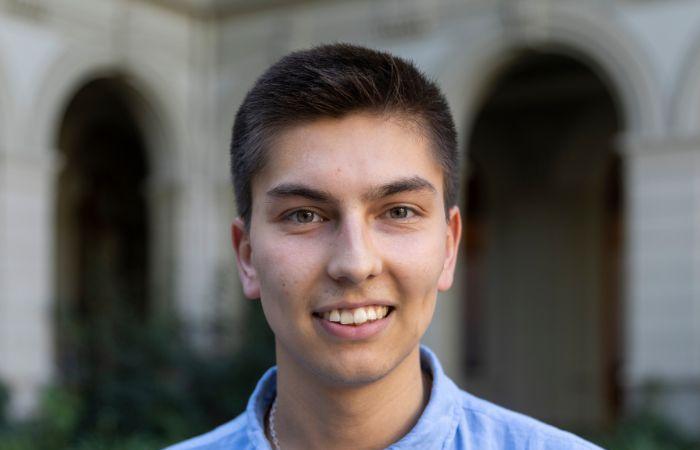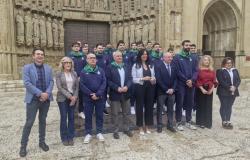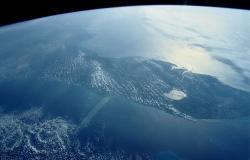Attentive, friendly and with a permanent smile, Daniel Novoa (24) arrives at our interview at the Central House of the University. Talking very quietly, he says that he recently finished his general medicine studies and has just begun specialization in internal medicine.
We had coffee in the meeting room of the UC Pastoral, a place that for him is very familiar, since since the beginning of his training in the Medicine career, he was an active participant in the Mission Country and Working Country projects. In addition, he participated in the pastoral of his career. However, their volunteers were even more dedicated when he assumed as coordinator of the social project called Calcuta UC.
“It was the year after the pandemic and it was necessary to reimprorate the project. The challenge was to stand up one of the most emblematic projects of pastoral. Calcuta visits prisons, hospitals and homes, places deeply marked by suffering. That was where I understood, with more clarity than ever, that our medical vocation cannot be oblivious to human pain,” he says.
When asked what marked him most about Calcutta, he says: “I would say that the main thing was to find the suffering under the carpet. That there are many people suffering in very forgotten contexts. And that we, deep down, as Catholics, we are called precisely to be in those places. so alien ”.
“I realized that in the race this could not be something separate. But we were lucky that within our vocation we could precisely attend to that suffering. And much is criticized for current medicine that is little human. I understood that a different medicine can be done, returning to the essence of caring for patients who are in a moment of vulnerability, suffering, ”he shares.
That experience left a deep mark on him, and it was the germ to create on UC, a project that was executed at the facilities of the Misericordia Foundation. Its objective: to promote more human medicine, closer and with Christian values. Through volunteers of various generations, Light UC He offered outpatient medical care and home visits to people in vulnerability, in addition to a formative accompaniment to volunteers.
-“We wanted to turn on that vocational flame that sometimes goes out with the intense rhythm of the race. Show that a different medicine can be exercised, focused on compassion and service. That is why the name ‘ignites’: because it seeks to keep alive that initial vocation that brought us to study medicine,” explains Daniel. The project, which mobilized more than 110 volunteers in its first year, also included a training line with weekly reflections on Christian vocation and values.
In 2023, Daniel was part of the first version of Pallqa UC, an International collaboration program promoted by the Vice -Rectory of International Affairs. Together with an interdisciplinary team of students, he traveled to the Molucas Islands, in Indonesia, to work with the Pohon Sagoe Foundation in health and education initiatives. For six weeks they lived with a community of 800 people in extremely precarious conditions, without drinking water or stable electricity.
“It was an experience that changed my way of seeing the world and medicine. Many children were malnourished, there was no access to hospital care, and we saw very painful cases, such as young people with treatable diseases who died due to lack of resources. We face challenges that in Chile are no longer frequent, and that forced us to return to the essential: the care of the other from human dignity,” he says.
Daniel currently has as a challenge to perform well in his studies: “Training well as a doctor is also part of the service. Good will is not enough; knowledge and preparation are needed. But you never have to lose sight of the fact that we are at the service of specific people, many times in very vulnerable times of their lives,” he says.
In the long term, he says that one of his interests is geriatric medicine. “Chile has great challenges in terms of care for older people. I think it is essential to build a country where to age is worthy. And that not only depends on medicine, but on public policies, cities designed for them, support networks. I want to contribute from there.”
“Many of the things that I apply today as a doctor I did not learn in a class, but accompanying, serving, listening. The UC allowed me to discover that knowledge and faith do not go on separate paths, but that they enrich each other,” he concludes.






